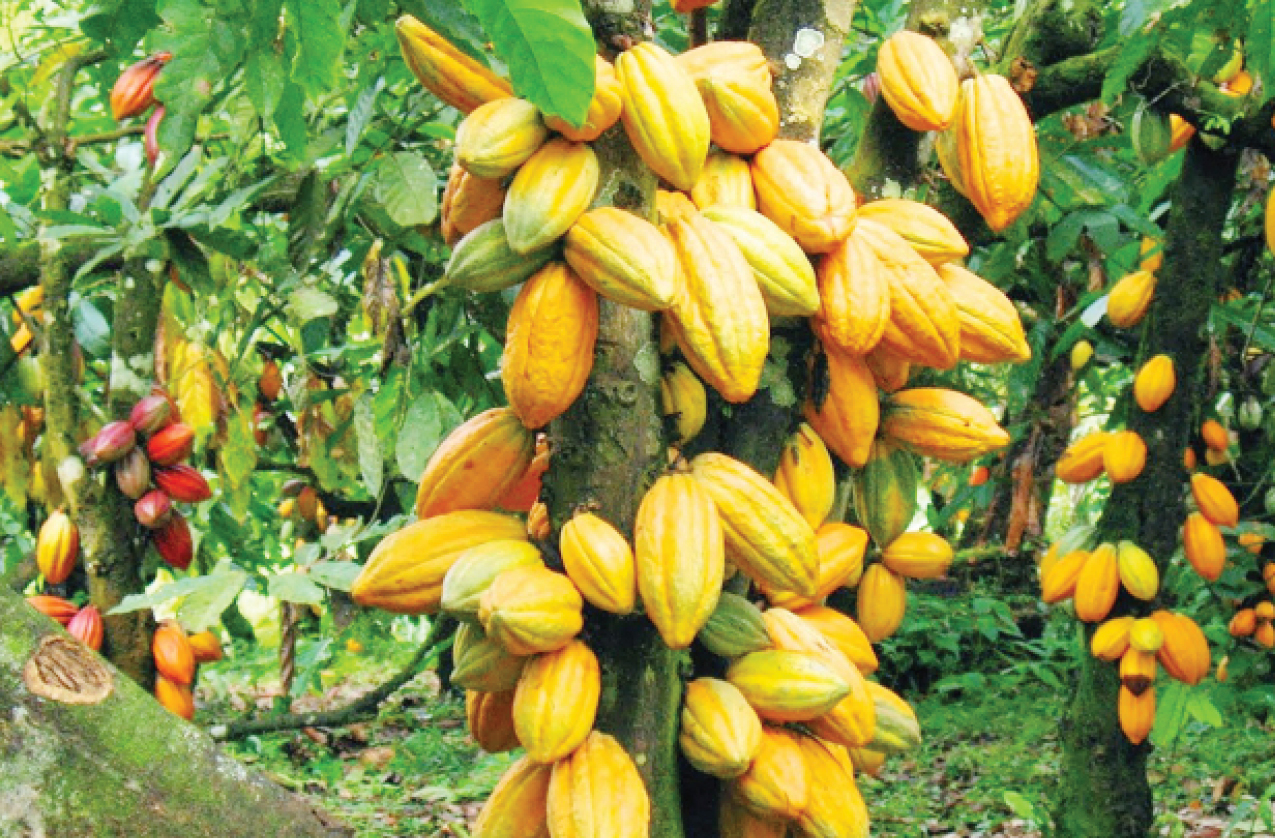Why cocoa, oil palm production has been on decline in Nigeria – Planters
In light of scarce public resources, Incorporated Society of Planters (ISP) has said Cocoa and Oil Palm production can significantly boost the nation’s Gross domestic product (GDP) if potentials of the industry were properly harnessed. The organisation claimed that Nigeria, formerly the world’s leading cocoa producer, had slipped in the rankings due to neglect of […]

Cocoa trees
In light of scarce public resources, Incorporated Society of Planters (ISP) has said Cocoa and Oil Palm production can significantly boost the nation’s Gross domestic product (GDP) if potentials of the industry were properly harnessed.
The organisation claimed that Nigeria, formerly the world’s leading cocoa producer, had slipped in the rankings due to neglect of the sector, particularly application of old age technologies and outdated farming techniques in the production processes.
ISP’s Proterm Vice Chairman in Africa, Fatai Afolabi, stated this on Friday at a media briefing ahead of the launch of the Africa chapter of the association slated for May 24 2024 in Abuja.
He noted that the establishment of ISP in Nigeria will help create an African hub as it will act as a regional organisation.
- Foreigners benefiting more from Nigeria’s solid minerals – NIPSS
- 50×2030 initiative: Stakeholders rally to boost food security
Nigeria is currently the fourth largest producer of cocoa globally. The country rakes in about N34 billion annually from exporting cocoa beans alone. This is besides other revenues from cocoa by-products like butter, cake, liquor and powder.
While the country trails Ivory Coast, Ghana and Indonesia behind, its output is still comparatively low.
Ivory Coast produces 2,200,000 tons of cocoa beans annually, while Nigeria’s total annual output is about 340,163 tons.
Also, though, there has been an increase in palm oil production Nigeria in the last few years, the country at present imports palm oil to the tune of about one million metric tonnes to supplement the local production to meet the high demand.
Afolabi noted that the country cannot rely on planting materials and methods from 70 years ago while expecting results comparable to countries that use modern technologies and techniques.
Stressing the need for Nigeria to learn from countries such as Indonesia, Malaysia, and Ireland, he said the forthcoming event will advance sustainable agriculture and foster collaboration among planters in the African continent.
He said: “There was a time Nigeria is number three but we have slid down with Nigeria occupying number five in the world. What the rest of the world like Malaysia, Indonesia Colombia and even Ireland that has currently overtaken Nigeria in the oil palm sector is doing is that they have sustained aggressive production.
“Definitely in Nigeria today, the paradigm has changed. We cannot continue to do planting the way it was done 50years ago when Nigeria held sway as the largest producer of palm oil. The only reason for instance why Malaysia and Indonesia have taken over Nigeria in palm oil is that they have changed their game in how they plant.
“We cannot be planting using the same material or the same system used 70 years ago and expect to get the same results as those that are using modern technologies and techniques are getting. ”
“Also you cannot expect to plant a seed for instance with a potential of one tonne to the hectare and expect to get 10 tonnes to the hectare yield. This means your production has been limited with the materials you have planted. Another question then is how have you planted. You will have good results when you use experts who know what materials to use and its upkeep. So these are issues we are going to talk about.”
He said the launch of ISP in Nigeria will address the issue of labour shortage in the country’s oil palm plantation sector, minimise operational cost and improve the yield of palm oil which in turn will increase the income of players, including the smallholder farmers.
Chairman, Incorporated Society of Planters (ISP), Africa, Shermal Perera, advised Nigeria to emulate the strides made by Malaysia in oil palm production recalling that the Asian country had one time learnt from many African countries.
